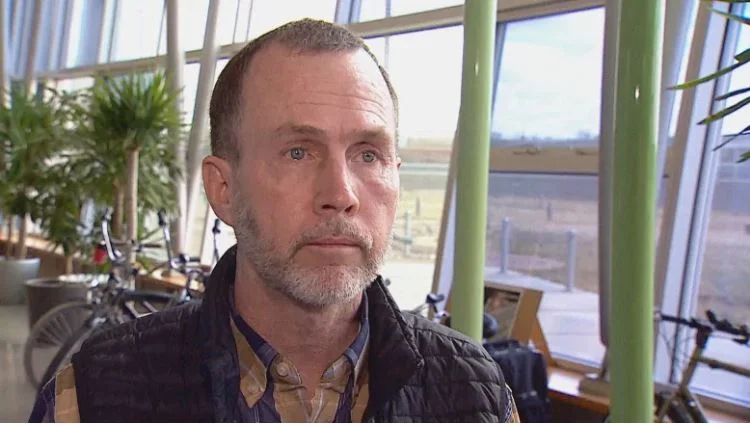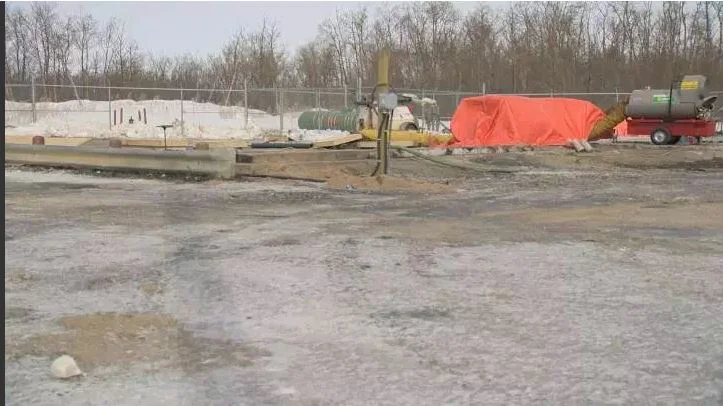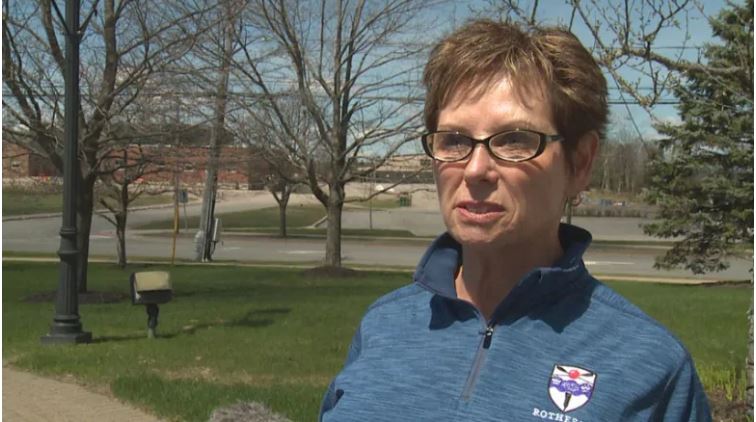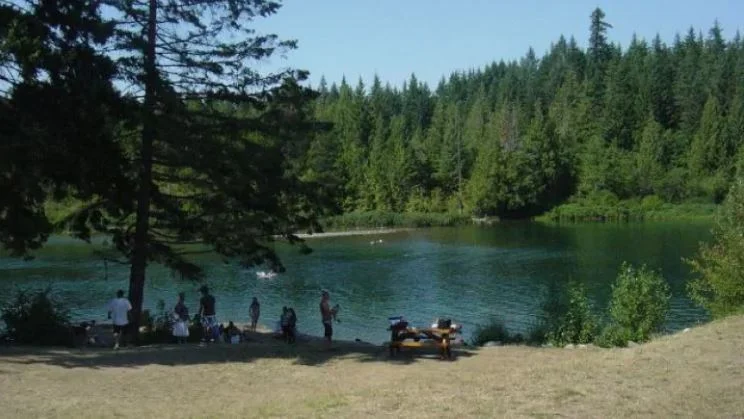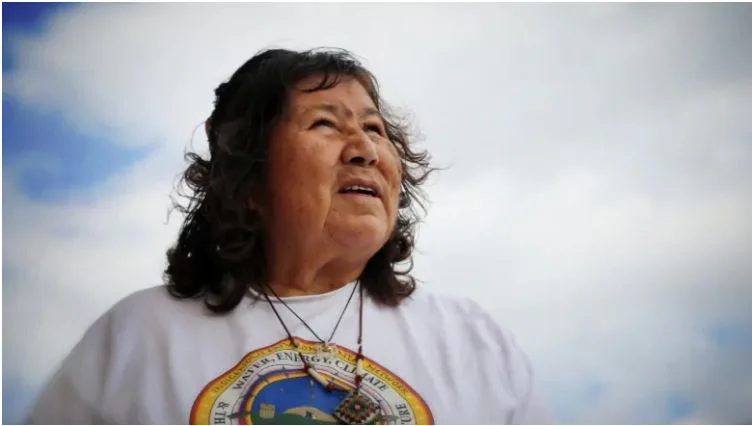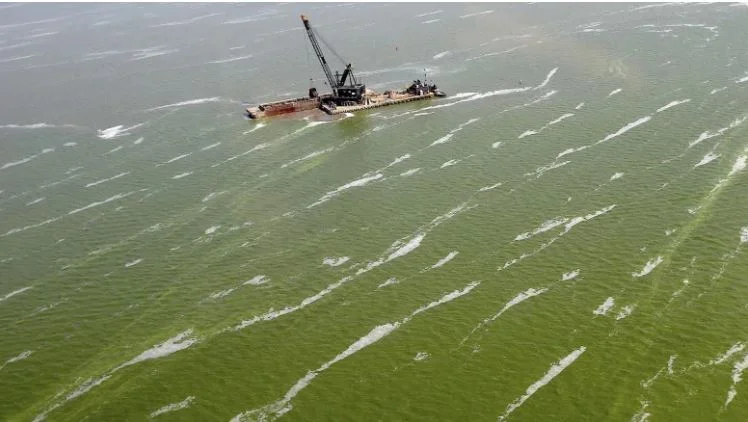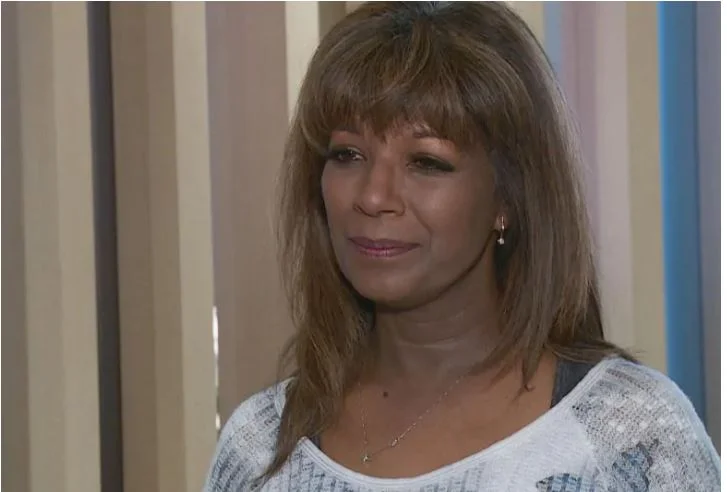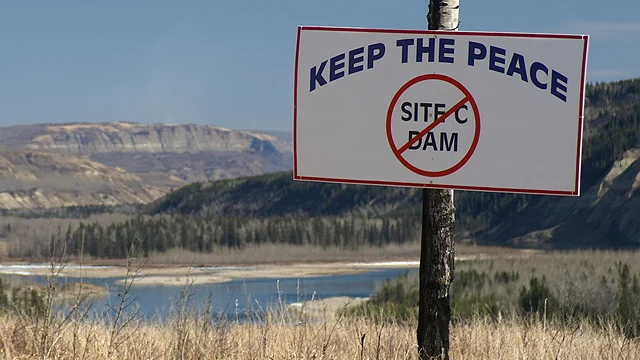The Liard First Nation in Yukon is testing a new method of obtaining clean water — pulling it out of the air. An atmospheric water generator installed in Watson Lake is gathering moisture from the air like a dehumidifier, then purifying it for drinking by using UV light. When working properly, the machine can generate 30 litres a day, which is enough for a family's daily needs.
Calgary learned lessons from Winnipeg on how to deal with frozen water pipes
As Calgary dealt with a particularly frigid winter and a series of stubbornly frozen water lines, it turned for advice to a place that's used to dealing with such things.
Winnipeg.
"Winnipeg has probably a lot more expertise in this area than we do, because it's something they experience fairly routinely," said Chris Huston, the manager of drinking water distribution with the City of Calgary.
There were nearly 300 cases of frozen water-service lines this winter in Calgary, Huston said, and dozens remain frozen even now, despite the arrival of spring.
Carry The Kettle water treatment plant fire ruled undetermined
The cause of the fire that destroyed the water treatment facility on Carry The Kettle Nakoda Nation has been ruled undetermined by Saskatchewan First Nation Emergency Management.
The facility was destroyed in February, leaving roughly 1,500 people without water.
According to Kimbal Ironstar, the First Nation’s projects manager, within three days of the fire they were able to hook up untreated well water and restore running water.
Rothesay mayor says cost of switching water systems shouldn't be put on tenants
The mayor of Rothesay says she's disappointed apartment owners have decided to pass the cost of switching their buildings to the municipal water system on to tenants.
"I don't think residents can afford that," said Rothesay Mayor Nancy Grant. "I think there might be other ways for apartment owners to handle that."
The city passed a bylaw requiring apartment building owners to switch to the municipal water system from well water and pay a consumption tax based on the amount of water used. Council approved the changes in March and sent a letter to apartment owners.
Water Act contentious at environment debate
The Water Act, passed in the P.E.I. Legislature but not yet proclaimed, was one of the more divisive issues of the first leaders debate of the provincial election campaign.
More than 250 people packed into an auditorium at UPEI to listen to the leaders discuss environmental issues, at a forum organized by Island environmental groups.
Topics ranged from protecting soil quality, to watershed group funding, to increasing the number of protected areas on P.E.I., to promoting the Island's natural history.
'It'll be a tougher summer': Vancouver Island reservoirs low after dry winter
B.C. Hydro is preparing for lower water levels in some Vancouver Island reservoirs and watersheds in the coming months, after a particularly dry winter.
Both the Puntledge and Campbell rivers are running low and that impacts everything from salmon runs to boating tourists, as well as electric utility operations.
Canada failed at monitoring waste dumps from mining companies
The secret of Whitefish River First Nation's award winning drinking water
While some remote Indigenous communities are still struggling with boil water advisories and crumbling infrastructure, a community north of Manitoulin Island has some of the best drinking water in the province. Since 2012, Whitefish River First Nation has won the Water Taste Challenge five times. The award is handed out to the First Nation with the cleanest water. It's an honour that community members take pride in.
Laced with fear: why some Ontario First Nations don't trust tap water or eat the fish
Water is something most Canadians take for granted. We have so much of it, it's no wonder. Per capita, our country has the world's third-largest freshwater reserves, but yet in many Indigenous communities, water can be difficult to access, at-risk because of unreliable treatment systems, or contaminated. That's the case in Delaware First Nation, an Indigenous community of about 500 people an hour southwest of London, Ont., a place where fishing was everything 60 years ago.
Ontario cheesemakers work to cut down water use
Cheesemakers in Ontario are taking a hard look at their water use with an eye to improving quality and sustainability. Though the industry is considered a "medium" water consumer by experts, an estimated 10,000 litres of water go into producing a single pound of cheese when the entire production line is taken into account.
Pulp mill 'at risk,' CEO says after N.S. review of contentious wastewater plan
The future of a Nova Scotia pulp mill remained uncertain Friday as the province asked for more work on its contentious proposal to pipe 85 million litres of its treated wastewater into the Northumberland Strait. The Northern Pulp paper mill has become a flashpoint, with its plan to pump waste into rich fishing grounds pitting forest industry workers against fishermen, environmentalists and even the P.E.I. government — which opposes the plan due to concerns over the impact on lobster harvesting.
'A new normal': decreasing ice cover on the Great Lakes
The changes caused by declining ice cover on the Great Lakes are pretty bad, but it's not all doom and gloom. Ice cover on the Great Lakes has declined in the past 40 years with average ice coverage dropping up to 75 per cent, depending on the lake. "We rely a lot on the Great Lakes for shipping ... so an ice-free Great Lake is not a barrier to shipping. But beyond that there are a lot of negatives associated," said Mike McKay, the executive director for the Great Lakes Institute for Environmental Research (GLIER), based at the University of Windsor.
Stopping algae blooms may start on farmlands
A handful of Chatham farms might hold the answer to reducing toxic algae blooms in the Great Lakes. These farms are collecting and analyzing their agricultural runoff, in hope of reducing the amount of phosphorus entering the waterways. It's part of a project, started by two organizations in Spring 2016, which aims to come up with a strategy to deal with toxic algae blooms. Out of that idea for the project — between the Ontario Federation of Agriculture and the Great Lakes and St. Lawrence Cities Initiative — came the Thames River Phosphorus Reduction Collaborative.
Spring run-off to blame for Edmonton's smelly tap water
If your tap water smells like chlorine, your schnozz has sniffed out a common springtime phenomenon in Edmonton. The spring thaw has made the city's drinking water more pungent than usual. Run-off from melting snow and river ice has washed higher than normal volumes of organic material into the water supply, said Shane Harnish, Epcor's senior manager of analytical operations. It's something workers at Edmonton's water treatment plants contend with every year. "What you're noticing is the chlorine smell in our water, and it's due to the chlorine reacting with some of this organic material," Harnish said in an interview Wednesday with CBC Radio's Edmonton AM.
Ban bottled water in city spaces, urges group
A group of water experts, students and former councillors is urging the City of Ottawa to ban bottled water in all its arenas and facilities. The Ottawa Water Study Action Group(OWSAG)gathered at City Hall on Monday to both celebrate the quality of local drinking water and ask the city to get out of the plastic water bottle business. "Ottawa tap water is terrific, it is much better than bottle water," said former city councillor Diane Holmes at the meeting.
Canada just cut the amount of lead allowed in water in half — here's what it means
For the first time almost three decades, Health Canada has updated its guideline for lead in drinking water — cutting the acceptable concentration of the metal in half. The decision is based on the latest science, according to the government body, which worked with the provinces and territories to reduce the maximum acceptable concentration from 0.01 mg/L, set in 1992, to 0.005 mg/L.
Liberals’ water pledges ring hollow for some B.C. First Nations still without drinking water
The elected leader of a remote First Nation in B.C. which has been under a boil-water order for 18 years says he’s confident his community will eventually find a solution to its drinking water woes — regardless of which party is elected federally this year. Chief Jimmy Lulua’s comments to the Star came a day after Canada’s new Indigenous Services minister boasted Ottawa has made “progress” on the First Nations drinking water crisis to mark World Water Day on Friday.
Alberta Party says they will push for fluoride in water if elected
A dental health advocate in Calgary is working to make drinking water fluoridation a campaign issue. There's already one political party on board — the Alberta Party said Friday that if elected, the government will place a greater focus on preventative health, including the fluoridation of municipal drinking water. "Research has shown that fluoride works, and we would encourage municipalities across the province to make the investments necessary to protect their children, their families," said Alberta Party leader Stephen Mandel.
How UCalgary experts help keep Canada's water safe and sustainable
In Canada, we are fortunate to have an ample supply of water; in fact, some statistics suggest we hold within our borders 20% of the world’s freshwater. And while our issues are not the same as those who struggle to find the resource. We are still challenged to ensure that everyone has access to a sustainable and safe water supply.
Amnesty uses World Water Day to highlight environmental racism in Canada
“Far too often, governments in Canada have demonstrated that they place little value on the health and well-being of Indigenous peoples and the revitalization of their cultures and traditions,” Tara Scurr, business and human rights campaigner with Amnesty International Canada, said in a statement Thursday.



